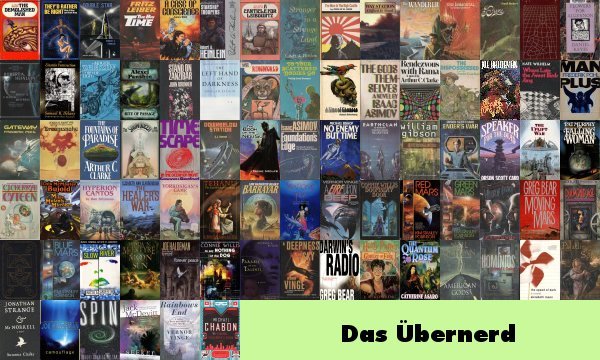 Back to the Future
Back to the Future 1986 Hugo Winner for Best Dramatic Presentation
Brazil was robbed for the Hugo that year but I can't complain too hard since while the voters went with a film that was a thousand times more popular it also went with one of the most fun time travel movies ever made. If the artistic film couldn't win at least the one that was good and fun took the prize.
Teenager Marty McFly accidentally catches a ride in a time traveling Delorean to the 1950's and doesn't carry the fuel with him. Stuck thirty years in the past he immediately triggers a grandfather paradox so he has to make sure his parents fall in love before catching a lightning bolt to get back to his own time.
The technical details of the movie always drove me nuts. Why would changing history take a week to have an effect? And if putting things right fixes it then why did it need to be changed at all? And why would a plan to catch a lightning bolt require split second timing when they have a sixty second window when it could happen? And how does plutonium generate 1.21 gigawatts in a spot above a Delorean's engine?
But in the end it doesn't really matter to me. The movie is fun. It's charming. A lot of my technical complaints have the direct answer, "It's that way to make the movie work," which a reasonable answer to any technical complains about a movie's premise. Trying to work out a time paradox is just headache inducing on your own; there's no reason to put it on screen and the situation gives the movie a race against time with visual representations that the audience can follow.
Thanks to playing up the humor of the situation the movie has a lot more punch than a straight adventure. The past isn't as idyllic as Marty was lead to believe which leads to plenty of gags. The complications still fall under things that work in a family comedy so there isn't really biting social commentary but it works for the story.
The cast assembled is about as perfect as you could get for the film. It's then teen hearthrob Michael J. Fox's first major film role and it launched him from television to bigger things. It also kicked off Christopher Lloyd's period where it seemed like it was working hard at the record of appearing in the movie films. They play off each other perfectly in this movie.
I'm not as fond of the two sequels that followed; they lack the same manic charm as the original though director Robert Zemeckis did work hard to make both sequels be something other than rehashes of the original.
Back to the Future is a fine movie and worth watching if you're one of the six people on earth who haven't seen it. I'd rank it with George Pal's The Time Machine and Terry Gilliam's Twelve Monkeys as one of the greatest time travel movies ever made. It lacks the same visual style of those two movies but it's a lot more approachable by a general audience as well.


